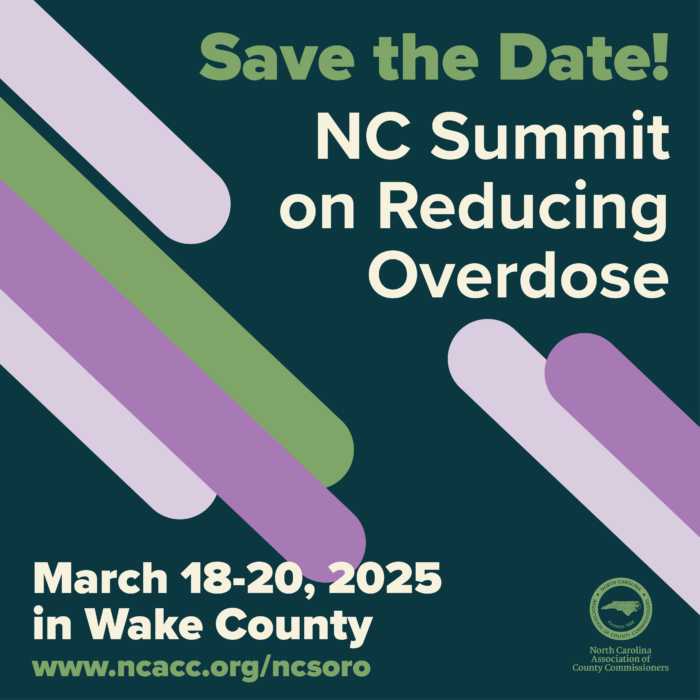
An event for county leaders, experts, providers, and those with lived experience
The NCACC is excited to announce an event to bring together local government leaders, subject matter experts, service providers, and people with lived experience working in crucial areas of the opioid overdose crisis, including in prevention, early intervention, harm reduction, treatment, and recovery efforts. This event will provide a space for local government leaders and staff and their community partners to participate in and learn from experts and each other over a two and a half-day conference in Wake County.
More details and registration information will be available September 3, 2024.
We hope to see you in March 2025!
Summit Sponsorship Information
Please contact Matt Bigelow if you are interested in sponsoring the 2025 NC Summit on Reducing Overdose.
